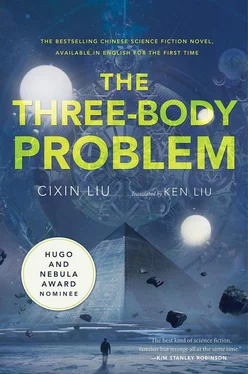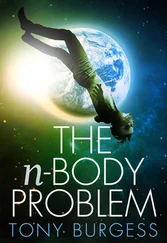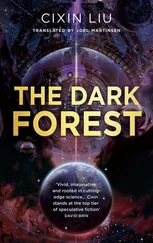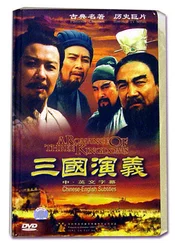“Bethune?” Ye was amazed.
“We don’t know the foreigner’s real name, so we just call him that.”
“Is he a doctor?”
“No. He’s planting trees up in the hills. Has been at it for almost three years.”
“Planting trees? What for?”
“He says it’s for the birds. A kind of bird that he says is almost extinct.”
Ye and her colleagues were curious and asked the production team leader to bring them for a visit. They followed a trail until they were on top of a small hillock. The team leader showed them a place among the barren loess hills. Ye felt it brighten before her eyes. There was a slope covered by green forests, as though an old, yellowing canvas had been accidentally blessed with a splash of green paint.
Ye and the others soon saw the foreigner. Other than his blond hair and green eyes and tattered jeans and a jacket that reminded her of a cowboy, he didn’t look too different from the local peasants who had labored all their lives. Even his skin had the same dark hue from the sun as the locals. He didn’t show much interest in the visitors. He introduced himself as Mike Evans without mentioning his nationality, but his English was clearly American-accented. He lived in a simple two-room adobe hut, which was filled with tools for planting trees: hoes, shovels, saws for pruning tree branches, and so on, all of which were locally made and crude. The dust that permeated the Northwest lay in a thin layer over his simple and rough-hewn bed and kitchen implements. A pile of books, most of which dealt with biology, sat on his bed. Ye noticed a copy of Peter Singer’s Animal Liberation . The only sign of modernity was a small radio set, hooked up to an external D battery. There was also an old telescope.
Evans apologized for not being able to offer them anything to drink. He hadn’t had coffee for a while. There was water, but he only had one cup.
“May we ask what you’re really doing here?” one of Ye’s colleagues asked.
“I want to save lives.”
“Save… save the locals? It’s true that the ecological conditions here—”
“Why are you all like this?” Evans suddenly became furious. “Why does one have to save people to be considered a hero? Why is saving other species considered insignificant? Who gave humans such high honors? No, humans do not need saving. They’re already living much better than they deserve.”
“We heard that you are trying to save a type of bird.”
“Yes, a swallow. It’s a subspecies of the northwestern brown swallow. The Latin name is very long, so I won’t bore you with it. Every spring, they follow ancient, established migratory paths to return from the south. They nest only here, but as the forest disappears year after year, they can no longer find the trees in which to build their nests. When I discovered them, the species had less than ten thousand individuals left. If the trend continues, within five years it will be extinct. The trees I’ve planted now provide a habitat for some of them, and the population is rising again. I must plant more trees and expand this Eden.”
Evans allowed Ye and the others to look through his telescope. With his help, they finally saw a few tiny black birds darting through the trees.
“Not very pretty, are they? Of course, they’re not as crowd-pleasing as giant pandas. Every day on this planet some species that doesn’t draw the attention of humans goes extinct.”
“Did you plant all of these trees by yourself?”
“Most of them. Initially I hired some locals to help, but soon I ran out of money. Saplings and irrigation all cost a lot—but you know something? My father is a billionaire. He is the president of an international oil company, but he will not give me any more funding, and I don’t want to use his money anymore.”
Now that Evans had opened up, he seemed to want to pour his heart out. “When I was twelve, a thirty-thousand-ton oil tanker from my father’s company ran aground along the Atlantic coast. More than twenty thousand tons of crude oil spilled into the ocean. At the time, my family was staying at a coastal vacation home not too far from the site of the accident. After my father heard the news, the first thing he thought of was how to avoid responsibility and minimize damage to the company.
“That afternoon, I went to see the hellish coast. The sea was black, and the waves, under the sticky, thick film of oil, were smooth and weak. The beach was also covered by a black layer of crude oil. Some volunteers and I searched for birds on the beach that were still alive. They struggled in the sticky oil, looking like black statues made out of asphalt, only their eyes proving that they were still alive. Those eyes staring out of the oil still haunt my dreams to this day. We soaked those birds in detergent, trying to get rid of the oil stuck to their bodies. But it was extremely difficult: crude oil was infused into their feathers, and if you brushed a little too hard, the feathers would come off with the oil…. By that evening, most of the birds had died. As I sat on the black beach, exhausted and covered in oil, I stared at the sun setting over a black sea and felt like it was the end of the world.
“My father came up behind me without my noticing. He asked me if I still remembered the small dinosaur skeleton. Of course I remembered. The nearly complete skeleton had been discovered during oil exploration. My father spent a large sum to buy it, and installed it on the grounds of my grandfather’s mansion.
“My father then said, ‘Mike, I’ve told you how dinosaurs went extinct. An asteroid crashed into the Earth. The world first became a sea of fire, and then sank into a prolonged period of darkness and coldness…. One night, you woke from a nightmare, saying that you had dreamt that you were back in that terrifying age. Let me tell you now what I wanted to tell you that night: If you really lived during the Cretaceous Period, you’d be fortunate. The period we live in now is far more frightening. Right now, species on Earth are going extinct far faster than during the late Cretaceous. Now is truly the age of mass extinctions! So, my child, what you’re seeing is nothing. This is only an insignificant episode in a much vaster process. We can have no sea birds, but we can’t be without oil. Can you imagine life without oil? Your last birthday, I gave you that lovely Ferrari and promised you that you could drive it after you turned fifteen. But without oil, it would be a pile of junk metal and you’d never drive it. Right now, if you want to visit your grandfather, you can get there on my personal jet and cross the ocean in a dozen hours or so. But without oil, you’d have to tumble in a sailboat for more than a month…. These are the rules of the game of civilization: The first priority is to guarantee the existence of the human race and their comfortable life. Everything else is secondary.’
“My father placed a great deal of hope in me, but in the end I didn’t turn out the way he wanted. In the days after that, the eyes of those drowned birds always followed me and determined my life. When I was thirteen, my father asked me what I wanted to do when I grew up. I said I wanted to save lives. My dream wasn’t that great. I only wanted to save a species near extinction. It could be a bird that wasn’t very pretty, a drab butterfly, or a beetle that no one would even notice. Later, I studied biology, and became a specialist on birds and insects. The way I see it, my ideal is worthy. Saving a species of bird or insect is no different from saving humankind. ‘All lives are equal’ is the basic tenet of Pan-Species Communism.”
“What?” Ye wasn’t sure she had heard the last term correctly.
“Pan-Species Communism. It’s an ideology I invented. Or maybe you can call it a faith. Its core belief is that all species on Earth are created equal.”
Читать дальше












